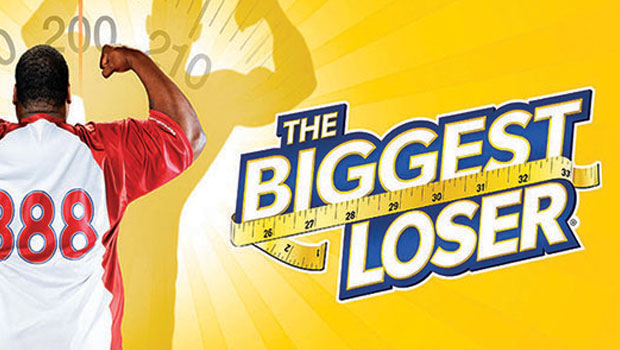The Toxic Legacy of “The Biggest Loser”

Below is a column by Dr. Yoni Freedhoff that we are reprinting with permission. Dr. Freedhoff is founder and medical director of the Bariatric Medical Institute, has written The Diet Fix: Why Diets Fail and How to Make Yours Work, and runs the website weightymatters.ca.
Recently, there have been a lot of headlines about The Biggest Loser and its dramatic, devastating, and likely permanent damage to contestants’ metabolisms, but that’s not what I’m writing about today. Today I want to talk to you about a different sort of lasting Biggest Loser damage, and, to illustrate, the story of Ali Vincent.
Vincent is the first female “winner” on The Biggest Loser. Back in Season 5, she lost 110 pounds. Now those pounds are back, and so is Vincent – she’s been on a media junket as she’s joined Weight Watchers in a bid to again lose weight.
Now Vincent regaining weight really isn’t that much of a story. If your weight loss methods are not only a misery, but a misery that trashes your metabolism, there’s a good chance you’ll regain weight. The story here is that apparently the brainwashing of the The Biggest Loser is so great that “once burned, twice shy” doesn’t seem to apply.
And I’m not talking here about Vincent putting herself out there. While I do think it opens a person up to incredible scrutiny to lose weight publicly, that’s clearly a personal choice. The attention is likely motivating while it’s happening, and I’ve little doubt it’ll directly or indirectly earn Vincent some modicum of further fame and fortune.
The issue is that Vincent doesn’t seem shy is to be once again adopting The Biggest Loser‘s narrative of competitive suffering to lose. She has joined up with a website called DietBet, where people put up cash as part of a weight loss pledge that in turn allows them to win that money back if they lose four percent of their weight in four weeks.
Four percent in four weeks is certainly doable. For a woman Vincent’s age, height, and weight, it would probably require her to consume in the neighborhood of a tightly controlled 1,000-1,200 calories a day. It’s not doable, though, to live an enjoyable and normal life on 1,000 calories.
The competition and prize money will inspire people to adopt non-sustainable approaches. I’m pretty sure Vincent has some experience with what happens in the long run when you undertake a non-sustainable approach.
The Biggest Loser philosophy embodies the very worst of modern weight loss efforts. It teaches viewers that suffering is crucial, that you’re a failure if you don’t want to suffer forever, and that scales measure our health and happiness. And sadly, while weight lost by way of The Biggest Loser doesn’t seem to last, those toxic lessons do.
This column has been lightly edited from its original form.
Want more news on Type 2 diabetes? Subscribe to our newsletter here.




